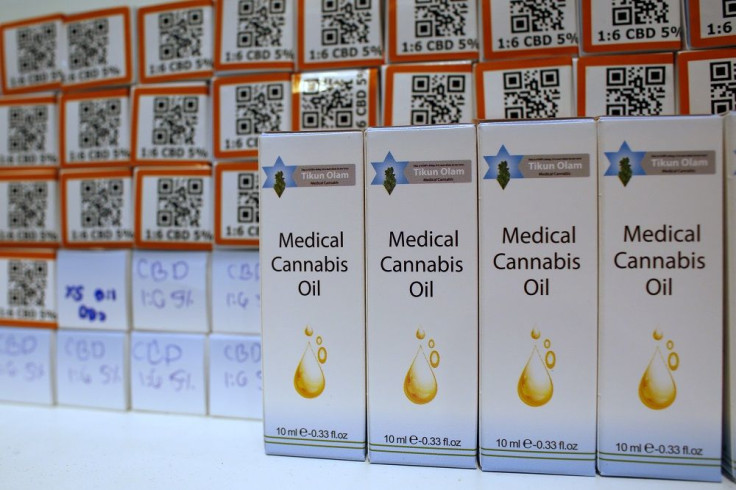US medical cannabis market to surpass $40 billion mark

The medical cannabis market, despite an ongoing battle for its legalisation in other states, is poised to exceed $40 billion (AUD$51.9 billion) worth of revenues over the next 10 years. According to a new report published by Ackrell Capital, the market, currently worth $4.4 billion (AUD$5.7 billion), will grow up to $9 billion (AUD$11.7 billion) in three years’ time before hitting the $100 billion (AUD$130 billion) mark by 2050.
The market research firm, nonetheless, says that this will only be translated to reality if medical cannabis becomes legal federally. Still, the growth of the medical cannabis market in 23 other states where the industry is now legal will continue due to the increasing interest of the public.
Among the reasons the emerging market will continue to appeal to US consumers is the growing list of illnesses that cannabis can cure. "Potential cannabinoid-based therapeutic applications have been identified for more than 40 medical conditions, including arthritis, cancer, chronic pain, epilepsy, glaucoma and HIV/AIDS,” the report stated.
Furthermore, the medical cannabis market is still on its nascent stage where a big amount of investment risks is present, making it highly palatable to investors in high-risk markets. "The early stage of the legal cannabis market has the makings of a ‘green gold rush.’ The groundswell of public support for legalization of cannabis and the demand for cannabis-based products is fueling industry growth at a pace rarely seen for a retail product since the end of Prohibition," according to the Ackrell Capital report.
Also, the political support for marijuana’s nationwide legalisation is becoming stronger. Experts say that there is a growing number of states that may possibly decriminalise weed this year, among which could be Nevada, Arizona, even Connecticut and Michigan. Rob Kampia, the head of Marijuana Policy Project, predicts an array of marijuana legalisation victories for numerous states such as California, Maine and Massachusetts for 2016 alone. The success in these areas, he says, could set the stage for more congressional debates on federal legalisation in the following years, which is essential in augmenting public attention on the issue.
Add to this the fact that the stigma on cannabis use is now gradually dissipating. More people are changing their views on weed after television shows — including news channels — as well as websites, share stories of its positive effects as a drug and its harmless nature even if used as tobacco.
“People puff on portable vaporizers everywhere you look: in bars, on the sidewalk, or while stuck in traffic on the way home from work. It’s impossible to know whether they’re inhaling tobacco or cannabis--nor does it matter, legally. Decades of social stigma have evaporated; all signs indicate legal marijuana is here to stay," said journalist Joel Warner.
With this, even the startups are inspired. Med X, Inc. a firm known for its research-based products and works on changing the public’s negative notion of cannabis through its media arm The Marijuana Times , has now decided to go public. Just recently, it launched a crowdfunding campaign on StartEngine to gain more leverage on the emerging market.
“Though we have only been campaigning for a short period of time, we've already received in excess of $1 Million in indicated interest to invest from over 600 individuals. While this is certainly exciting news on the capital front, we feel it's most important because it shows a real connection has been established with our consumers," said Dr David Toomey in a press statement.
The legalisation movements and successes in select states have also fueled cannabis companies’ enthusiasm over international expansion. Many local firms are now heading abroad — Germany, Canada and Australia — to introduce not only their products but also their brand of advocacy in educating people about the medical benefits of the weed.
Dixie Elixir, the cannabis-focused company that previously inked deals with pot shops in Oregon and Arizona, has also announced an Australian and New Zealand expansion. Also, according to a recent Reuters report, US companies’ total investment in Israel has now expanded to $50 million (AUD$65 million) since 2014, a number that could increase several folds more if the market finally achieves national legalisation.
However, a lot of things could still happen in the near future. The medical marijuana segment could still experience changes after the presidential elections. Having a Republican president is very different from having the likes of Bernie Sanders or Hillary Clinton, who are both in favor of legalising marijuana for medical purposes.
What’s difficult to change now is the shifting perception on the once-illegal product: Conversions are happening—it may be not on the political level, but surely there’s a big piece of it in the consumer segment.





















